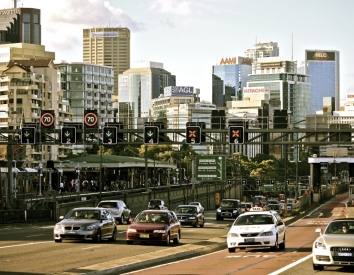Critically unpacking customer service in hospitality and equalising the playing field to be responsive to workers is needed now more than ever, writes Navishkar Ram.
WORKING FRONTLINE in hospitality is perhaps one of the toughest jobs in Australia.
While this statement may ruffle more than a few feathers by those slogging it out in medicine, essential services or any other number of educated, degree-qualified professions, it stands true regardless for a considerable number of reasons.
Working broadly in hospitality – “hospo” as it is affectionately termed by many insiders – is almost violently challenging and not merely because it is a high pressure and low respect occupation — or at least, conceived to be so from those on the outside looking in.
No, service provision within this context is complicated because of the societal tendency to devalue so-called “unskilled labour” and the near-automatic (and equally asinine) assumption that such jobs are both unworthy of respect and require no adherence to social norms of good manners and cordiality during interactions.
Part of this dynamic is the entrenched belief system of modern consumerist societies that workers providing unskilled labour represent the very bottom of the career hierarchy — the folks that didn’t complete university, didn’t attain high paying jobs and who seemingly gave up any hope of pursuing improved prospects.
Only, this viewpoint is wrong — solidly and as matter of fact. There are many workers in the hospitality sector who are degree or certificate qualified. I happen to have three degrees, including a master's. I know, from personal experience, that possession of a higher qualification acts more like the norm rather than the exception.
Within the career landscape, a degree is not a guarantee of upward movement, nor should it be seen as such. Keeping with our theme here, does possession of a degree improve social impressions of work in hospitality to be more valuable? Does it force us to rethink how we collectively treat workers serving us in this field?
Truthfully, it shouldn’t matter. Normative statements such as these are dangerous of course, not least because they impose one set of beliefs over another. But in this instance, such a position is not at odds with a growing sense of appreciation for all work and workers and not merely some work and some workers.
A brain surgeon, ordinarily, exceeds educational expectations typically imposed within the hospitality sector; when last I checked, there weren’t that many baristas who doubled as graduates of the MBBS program. However, this paradigm does not propose that a brain surgeon is deserving of either more or less respect than a barista — both serve a function and both are essential in their own right.
While it can be very strongly argued that a brain surgeon acts to save lives, our (very noticeable) caffeine dependence might also lead us to propose that baristas too are life-savers — a different kind of course. Excusing the cheek in that statement, coffee does feature heavily as a source of relief for many in our stressful lives.
Providing service in an environment that has too exhaustively driven home the incorrect saying of “the customer is always right” is objectively difficult work. Contributing to the complication in deconstructing this viewpoint as practised every day in hospitality settings across Australia is that it is experienced variably.
For some, it includes a direct confrontation with the idea, standing firm to a belief that each person is different and that each experience will similarly be different. For other operators, full adherence to this maxim is unconditional and deviation from it can lead to internal punishment or even termination.
But unlike so many sectors, hospitality is married to the saying — it has literally built a reputation off of it. The expectation of many customers is that the maxim is always correct and that it cannot not be so, purely because it has always been.
The problematic issue with the “customer is always right” ideology stems from the assumptions it imposes on workers in hospitality. While the saying is not institutionalised to any degree and is not imposed officially as part of any significant overseeing body in the industry, it is communally understood and applied often.
The saying implies that:
- the customer is always right even when they’re not;
- no degree of actual lived, educational or professional experience on part of the server will ever be sufficient to disprove the statement;
- workers are subservient to the will, behaviour and expectations of the customer, no matter how inconceivable, irrational or petty they are; and
- all the lived experiences, educational and professional attainment, personal contributions to society or individually brilliant traits and achievements are worthless in the face of a customer’s demands — even if totally and irrevocably petulant.
While these observations apply mostly in cases where the customer behaves inappropriately and perhaps acts rudely or abusively, it can also be said to apply more generally. Principally through the assumption that workers in hospitality will always remain subservient to the customer, the playing field will always be unequal, no matter how nuanced it is in reality.
With the hospitality sector struggling to find workers to take up jobs and with a renewed panic in the industry regarding this skills shortage, until interactions between workers and customers equalise and due attention is paid to the deprivations which occur daily in the work of hospitality professionals, cafes and restaurants will continue to struggle.
Perhaps I may be so bold as to introduce a new maxim, one for the times we are in: “Good customer service begins with good customers.”
Try it out for yourself.
Navishkar Ram is an avid opinion piece writer, social commentator, life-long progressive and a local of South-Western Sydney.
Related Articles
 This work is licensed under a Creative Commons Attribution-NonCommercial-NoDerivs 3.0 Australia License
This work is licensed under a Creative Commons Attribution-NonCommercial-NoDerivs 3.0 Australia License
Support independent journalism Subscribe to IA.















